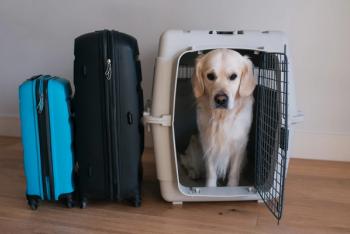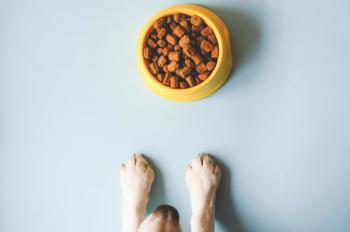
APHIS court comments for identification standards
Washington - The U.S. government has joined the microchip fray at the request of the two-year-old Coalition for Reuniting Pets with Families.
WASHINGTON — The U.S. government has joined the microchip fray at the request of the two-year-old Coalition for Reuniting Pets with Families.
The coalition, which includes the American Veterinary Medical Association (AVMA), American Animal Hospital Association, American Society of Veterinary Medical Association Executives (ASVMAE) and welfare and shelter groups, is seeking a universal scanner that will read all microchip technology.
"Even liberal estimates have shown a 5-percent market penetration of pet animal implantation in the United States, and that's just not adequate," says Ralph Johnson, ASVMAE liaison to the coalition. "We want to have a system in which people can have confidence, whether that's a shelter worker, veterinarian or pet owner, so that they know that when their animal is chipped with any of the chips that are commercially available, that the veterinarians or shelter worker is going to be able to find that and read it, not just detect it, but truly read that chip and speed the reunification of that pet with its owner."
Language included in the U.S. Department of Agriculture appropriations bill directed the Animal and Plant Health Inspection Service (APHIS) to develop regulations that allow for an open radio-frequency identification technology microchip system that would enable a scanner to read all microchips used for the identification of pets.
Subsequently, APHIS is courting comments through Sept. 6 to determine what action, if any, will be made. According to the Animal Welfare Act (AWA), APHIS does not have regulatory authority over private pets. It has the authority to regulate most animals used for exhibition, research and the wholesale pet trade, which means any standard it might propose would apply only to high-volume breeders unless it amended the AWA.
In a statement to DVM Newsmagazine, APHIS states: "It is beyond the scope of the Animal Welfare Act to determine if there is a need to standardize microchip standards. We have been petitioned to consider the issue, as well as directed by Congress to explore the microchipping of pets ... APHIS intends to review all submitted comments and information to determine what course of action best serves the welfare of regulated animals."
While APHIS examines the role of identification technology for livestock and other commercial enterprise, many observers wonder if an APHIS standard will trickle down to private practice and pets.
"I don't thing that there is any suggestion here that suddenly we are inviting APHIS to intervene in either animal sheltering activities or in private practice veterinary activities," Johnson says. "This is about standards in the channels that are under the purview of APHIS."
AVMA coalition liaison Dr. Rosemary LoGiudice, assistant director of the membership and field services division of the AVMA, says as long as universal scanners are in place, veterinarians should be free to choose the right microchips for their clients.
"If there are truly global standards available, then veterinarians can decide for themselves what frequency they would like to use," she says. "But having a scanner that reads all chips would be an advantage for everyone."
Shelters are especially burdened with disparate systems that are cumbersome at the practical level and ineffective at the technical level, sources say. But the question remains: Why is the Coalition for Reuniting Pets and Families courting relief from an agency that doesn't regulate family pets?
"There is somewhat of a disconnect, but this is the first time that we've been able to get any consideration at any level with any kind of methodology for this to improve," says John Snyder, senior director of companion animals for the Humane Society of the United States, which formed the coalition. "The United States is just ridiculous. We've got encrypted chips; we've got different standards; we've got different scanners; we've got companies that are going to be launching another ISO across the board. And the animal welfare community, primarily the shelters in this country, are carrying the full liability to make the system work. We're tired of it."
Newsletter
From exam room tips to practice management insights, get trusted veterinary news delivered straight to your inbox—subscribe to dvm360.




